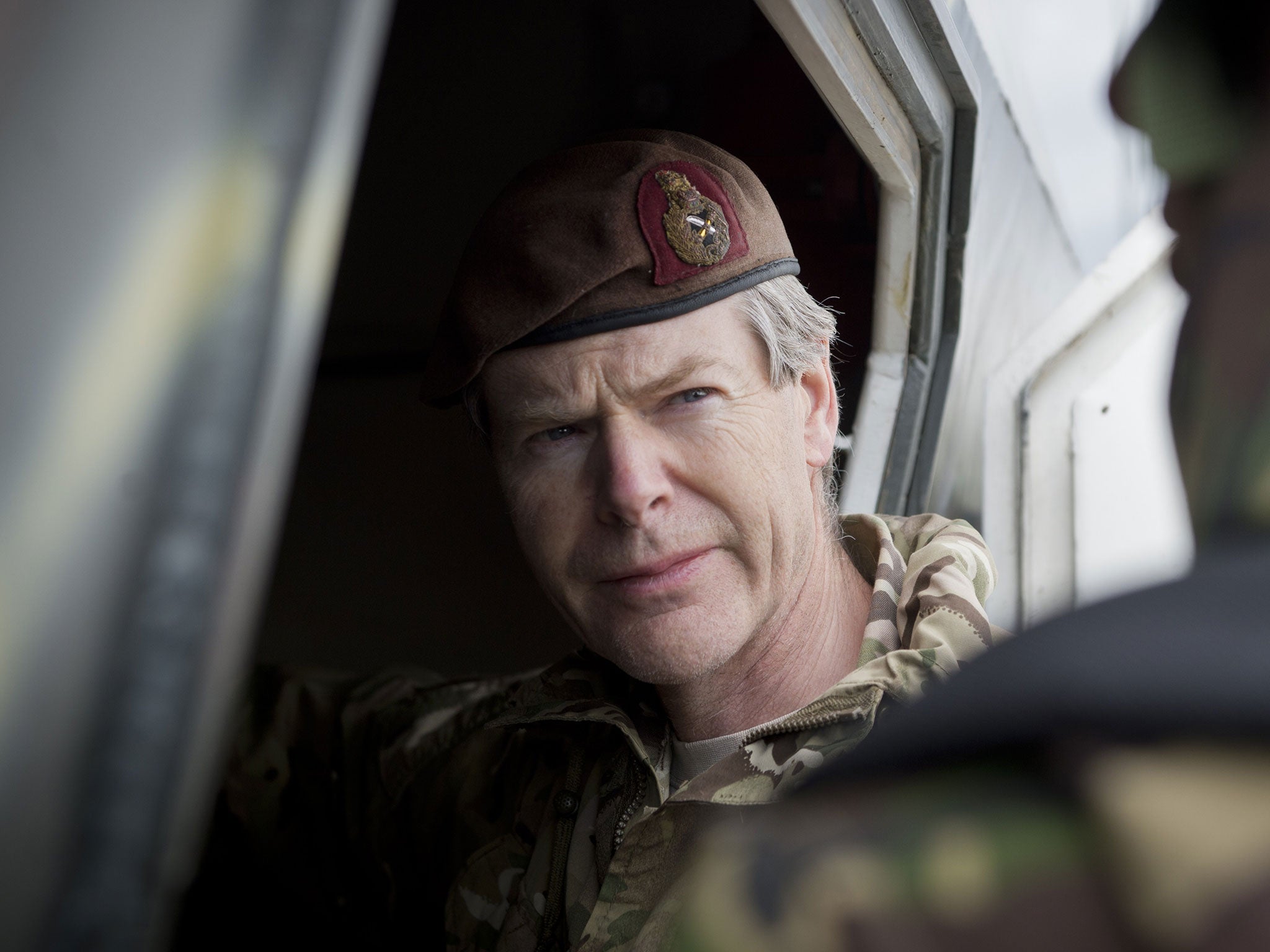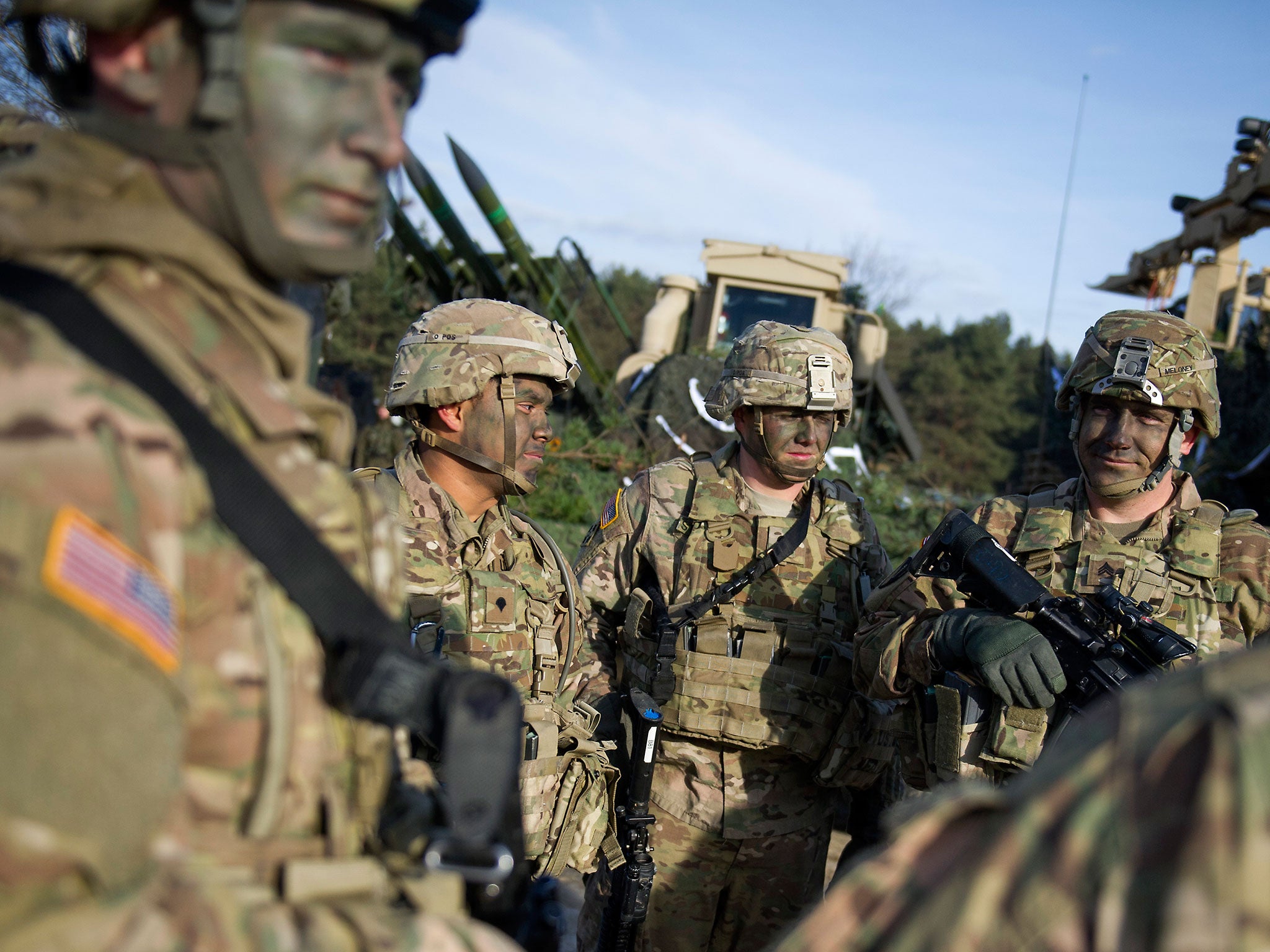Russia's meddling in US election could be 'act of aggression', says Nato commander
General Sir Adrian Bradshaw says ‘blatant aggression’ could trigger collective defence clause

Your support helps us to tell the story
From reproductive rights to climate change to Big Tech, The Independent is on the ground when the story is developing. Whether it's investigating the financials of Elon Musk's pro-Trump PAC or producing our latest documentary, 'The A Word', which shines a light on the American women fighting for reproductive rights, we know how important it is to parse out the facts from the messaging.
At such a critical moment in US history, we need reporters on the ground. Your donation allows us to keep sending journalists to speak to both sides of the story.
The Independent is trusted by Americans across the entire political spectrum. And unlike many other quality news outlets, we choose not to lock Americans out of our reporting and analysis with paywalls. We believe quality journalism should be available to everyone, paid for by those who can afford it.
Your support makes all the difference.Nato’s most senior British officer has claimed that alleged Russian cyber attacks could be deemed an act of aggression and trigger the military alliance’s principle of collective defence.
General Sir Adrian Bradshaw, the Deputy Supreme Allied Commander Europe, said allegations of interference in American and European elections and an international disinformation campaign could cause the definition of an “attack” to be widened.
Nato’s founding treaty states that “an armed attack against on or more [members] shall be considered an attack against them” and allow allies to take any action deemed necessary in self defence.
General Bradshaw said the article, number five, would come into effect “when it’s declared to be”.
“It is a political decision, but it is not out of the question that aggression, blatant aggression, in a domain other than conventional warfare might be deemed to be Article Five,” he told The Times.
The measure was used for the first time after the 9/11 terrorist attacks in New York and Nato has also invoked collective defence over the Ukrainian and Syrian civil wars.
When the treaty was drawn up, Nato’s primary aim was to counter the risk of the Soviet Union expanding through Europe.

But almost 70 years on, the alliance’s focus has expanded to hybrid warfare, including cyber attacks and hacking, which has sparked the creation of a dedicated Nato online defence force.
General Bradshaw said Nato has “declared cyber as a domain in warfare, alongside air, maritime, special forces and land”.
“It’s a growing area,” he told an event held by the Council on Foreign Relations in January.
“It is hard to imagine any future conflict that doesn’t include a substantial cyber element.
“It’s certainly a big part of our potential threat from both Russia and from Islamist extremists.”
The commander, who is to be replaced by Lieutenant General Sir James Everard later this month, said Russia posed a “hybrid threat” to Nato members.
“It’s not just the threat of overt military attack, but it’s a raft of other measures, including covert, paramilitary, and non-military activities, some of which will be coordinated by the intelligence arms of Russia,” General Bradshaw added.
“And we as Nato need to have our antenna tuned to the signs that this sort of hostile activity is going on.”
He accused the Kremlin of “showing a proclivity to disobey the rules of international relations” with its military incursion into Crimea and alleged backing for rebels in eastern Ukraine.
“We need to put in place thoroughly effective and convincing deterrence so that everybody knows where the red lines are,” General Bradshaw said.
“We are effectively building and sustaining military capability so that we never have to use it.”
His comments came amid an ongoing storm over Russia’s alleged interference in the US election in favour of Donald Trump.
The President has defended Russia against his own intelligence agencies’ allegations of involvement in the Democratic National Committee cyber attacks, and other leaks and “fake news” spread to damage Hillary Clinton.
“We assess Russian President Vladimir Putin ordered an influence campaign in 2016 aimed at the US presidential election,” said a report released by the Office of the Director of National Intelligence.
“Russia’s goals were to undermine public faith in the US democratic process, denigrate Secretary Clinton and harm her electability and potential presidency.
“We further assess Putin and the Russian Government developed a clear preference for President-elect Trump.”
European intelligence agencies have warned attempts could also be made to influence upcoming votes in France, the Netherlands and Germany.
A recent report by the House of Commons Foreign Affairs Committee said the “rise of fake news” emanating from Russia was also a concern, questioning the impartiality of state-owned outlets Russia Today and Sputnik.
The Kremlin has denied all allegations of attempting to influence international elections or waging a disinformation campaign, while accusing Nato and the West of engaging in a “propaganda war” against it and warmongering with increasing military deployments and drills in eastern Europe.
When contacted for a comment on General Bradshaw’s remarks, the Russian embassy in London referred The Independent to its tweets.
Join our commenting forum
Join thought-provoking conversations, follow other Independent readers and see their replies
0Comments